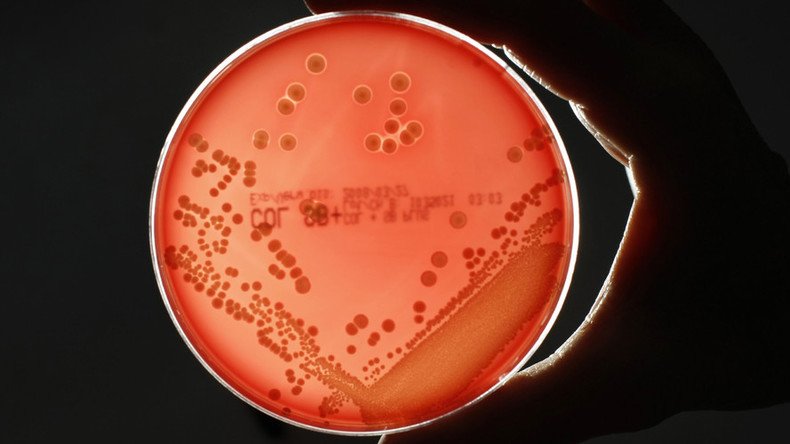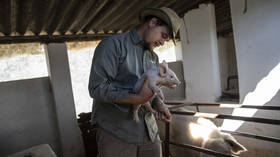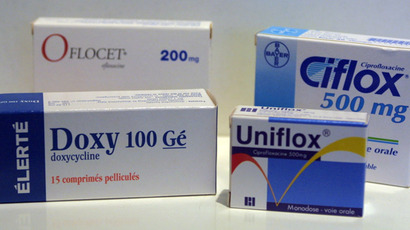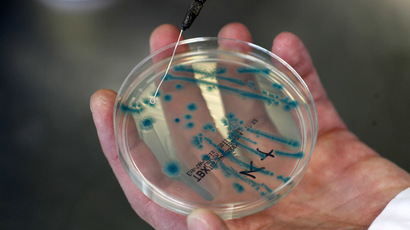3-minute test to detect superbugs and potentially E. coli & venereal diseases trialed

Oxford scientists have developed a three-minute computerized blood test that analyzes superbugs and bacteria resistant to many types of antibiotics, to pick the most effective cure. It’s designed to stop patients taking excessively powerful drugs.
The sample test device is the size of a USB stick and requires no special expertise from a health worker.
The Mykrobe Predictor program prescribes exactly what is needed to deal with a specific disease, and considerably shortens the treatment period.
The Mykrobe Predictor program has been trialed in three hospitals, in Brighton, Oxford and Leeds on samples from 4,500 patients. The test developed at Oxford’s Wellcome Trust for Human Genetics has proved the software used to find pathogenic agents was 99 percent accurate at identifying antibiotic resistance in the MRSA superbug, and more than 82 percent accurate at detecting tuberculosis.
“Although this test deals only with TB and MRSA, we expect these methods to be extended to E.coli, pneumonia, gonorrhoea and other STDs," the Daily Mail cited the creator of the Mykrobe Predictor computer programme, Dr Zamin Iqbal, as saying . “We can test in minutes and now get an answer on which drugs can be used to treat a TB infection in two weeks, instead of up to 17 weeks, which it takes using current technology that has not changed in decades,” Dr Iqbal said.
‘Super-gonorrhea’ in UK may be untreatable, may show up in the US https://t.co/g0aymDPA4dpic.twitter.com/4dsDMGCL72
— RT (@RT_com) December 31, 2015Long believed to be an illness of the past, tuberculosis has re-appeared in the UK in recent years with the influx of migrants and asylum seekers. In some parts of London the rate of TB infection is higher than in countries such as Eritrea, Iraq and Rwanda, with 2,500 cases registered in the British capital alone last year, according to a report issued by the London Assembly in October 2015.
Just as in MRSA superbug cases, some forms of tuberculosis (DR-TB, MDR-TB) are resistant to the most powerful antibiotics.
‘Post-antibiotic era’ looms amid unregulated drugs market – UK govt review https://t.co/EuA2mv0ySlpic.twitter.com/LA8ask9Kum
— RT (@RT_com) November 22, 2015The same applies to E.coli. Last December, Public Health England registered two British patients infected with a strain of E.coli resistant to even polymyxins, the “last-resort” powerful antibiotic.
This tendency is due to medical practice over the last few decades, when patients were prescribed omnipotent “kill-them-all” antibiotics. On one hand they caused mutations of bacteria into drug-resistant forms, and on the other intoxicated patients with overly powerful medications.















